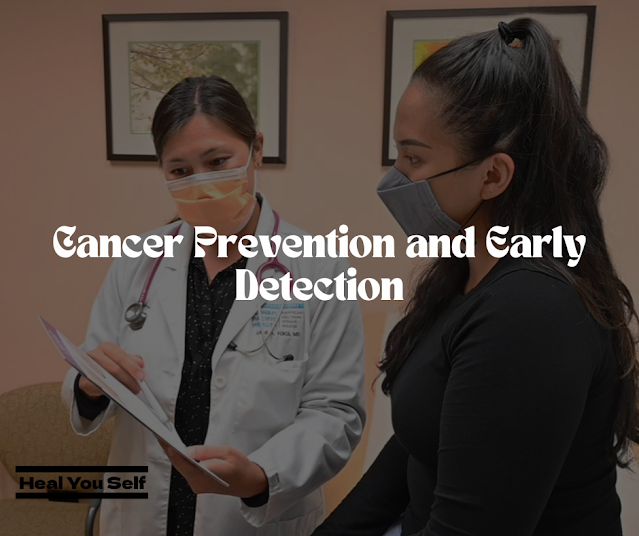Cancer Prevention and Early Detection: Your Path to Health
Cancer is a word that can evoke fear and uncertainty, but understanding how to prevent it and detect it early can empower us to take control of our health. With advancements in medical science and greater awareness, we have more tools than ever to fight this disease. This article will explore the importance of regular screenings and check-ups, recognizing early warning signs, and the role of vaccines in cancer prevention.
Importance of Regular Screenings and Check-Ups
Regular health screenings and check-ups are crucial in the fight against cancer. These preventative measures can detect cancer in its early stages, when it is most treatable. For many types of cancer, early detection can significantly increase the chances of successful treatment and survival.
Breast Cancer: Mammograms are essential for women, particularly those over 40 or with a family history of breast cancer. Early detection through mammography can find breast cancer before symptoms develop, leading to better outcomes.
Cervical Cancer: Pap smears and HPV tests are vital for women’s health. These tests can detect precancerous changes in the cervix, allowing for early intervention before cancer develops.
Colorectal Cancer: Colonoscopies and other screening methods like fecal occult blood tests can identify polyps or early-stage cancer in the colon and rectum. Removing polyps early can prevent them from becoming cancerous.
Prostate Cancer: Men, especially those over 50, should discuss prostate cancer screening with their doctors. PSA (Prostate-Specific Antigen) tests can help detect prostate cancer early.
Skin Cancer: Regular skin exams by a healthcare professional and self-exams are important for detecting skin cancer early. Look for new growths, moles that change in appearance, or sores that do not heal.
Recognizing Early Warning Signs of Cancer
Being aware of your body and recognizing early warning signs of cancer can save your life. While many symptoms can be attributed to less serious conditions, it’s essential to consult a healthcare provider if you notice any persistent changes. Some general warning signs include:
Unexplained Weight Loss: Sudden, unexplained weight loss of 10 pounds or more can be a sign of cancer, particularly cancers of the pancreas, stomach, esophagus, or lung.
Persistent Fatigue: While fatigue can result from various causes, persistent and unexplained fatigue can indicate cancers such as leukemia or colon cancer.
Changes in Skin: New growths, sores that do not heal, changes in existing moles, or any unusual skin changes should be checked by a healthcare provider.
Unusual Bleeding or Discharge: Blood in urine, stool, or unusual vaginal bleeding can be early signs of cancers like bladder, colorectal, or cervical cancer.
Lumps or Thickening: Any new lump or mass, especially in the breast, testicles, or lymph nodes, should be evaluated by a healthcare provider.
Difficulty Swallowing or Persistent Cough: Persistent cough, hoarseness, or difficulty swallowing can be signs of cancers of the throat, esophagus, or lungs.
Vaccines and Their Role in Cancer Prevention
Vaccines have revolutionized cancer prevention, offering protection against viruses that can lead to cancer. Two significant vaccines are the HPV vaccine and the Hepatitis B vaccine.
HPV Vaccine: Human Papillomavirus (HPV) is linked to several cancers, including cervical, anal, throat, and some types of head and neck cancers. The HPV vaccine is recommended for preteens (both boys and girls) aged 11-12, but it can be given as early as age 9 and up to age 45. This vaccine has dramatically reduced the incidence of HPV infections and related cancers.
Hepatitis B Vaccine: Chronic Hepatitis B infection can lead to liver cancer. The Hepatitis B vaccine, typically given to infants, provides long-term protection against the virus and reduces the risk of liver cancer.
Conclusion
Cancer prevention and early detection are powerful tools in reducing the burden of this disease. Regular screenings and check-ups, staying alert to early warning signs, and taking advantage of vaccines can make a significant difference in outcomes. By incorporating these practices into your health routine, you can take proactive steps to protect yourself and your loved ones from cancer. Remember, early detection saves lives, and prevention is always better than cure. Stay informed, stay vigilant, and take control of your health.

